
A nighttime view of DeSoto Falls with the Milky Way galaxy in the sky and Saturn and Jupiter in view right above the waterfall: Ron Burkett
By Glynn Wilson –
LOOKOUT MOUNTAIN, Ala. — For nearly half a century, Dekalb County in the mountainous northeastern region of Alabama along the Georgia line really was the sock capital of the world. It wasn’t just a slogan like some places have, where the chamber of commerce makes something up and struggles to make it come true like a dream.
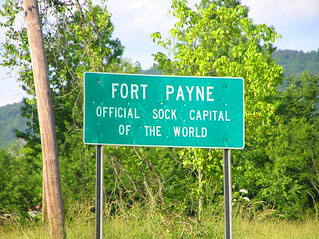
At one time there were about 150 mills around, big and small, with 5,000 workers making a living wage and loving life. A lot of people had lake houses back in those days, and there were supper clubs and big golf tournaments, said Donna Everett Powell, owner of a distribution warehouse.
“There was even a hosiery golf league,” she said. “It was fabulous times here then.”
Her father Jack Everett owned one of the biggest mills in town, but sold out to Fruit of the Loom in 1992. Her uncle, Eddy Everett, still has a mill in town, and just reopened partially after a three week shutdown due to the novel coronavirus and related economic slowdown.
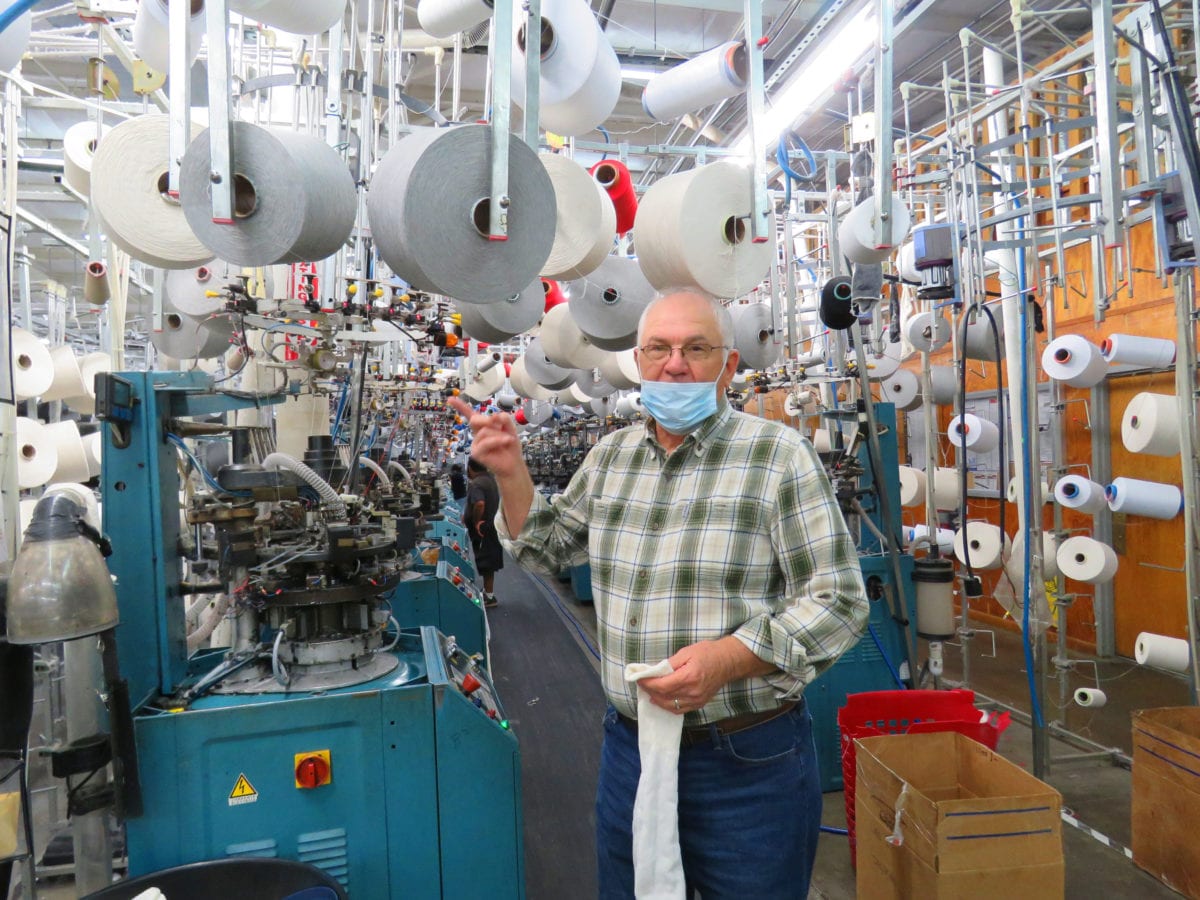
Ben Mar sock mill owner Eddy Everett, showing off his factory while wearing a coronavirus mask: Glynn Wilson
Everett got into the sock business in the 1970s, full time in the ’80s, but he remembers stories about women making socks here at their kitchen tables or in their basements going all the way back to the 1920s.
Born in Chattanooga but raised in Fort Payne, Powell refers to herself as a true “lint head,” for what they called workers in all the sock, hosiery and other garment and apparel mills all over the area.
“Our entire economy ran on hosiery,” she said.
At least then, not so much now.
While she studied at the University of Alabama in Tuscaloosa — she remains a loyal Roll Tide Alabama fan — and after graduation, her friends would come visit and marvel at the place.
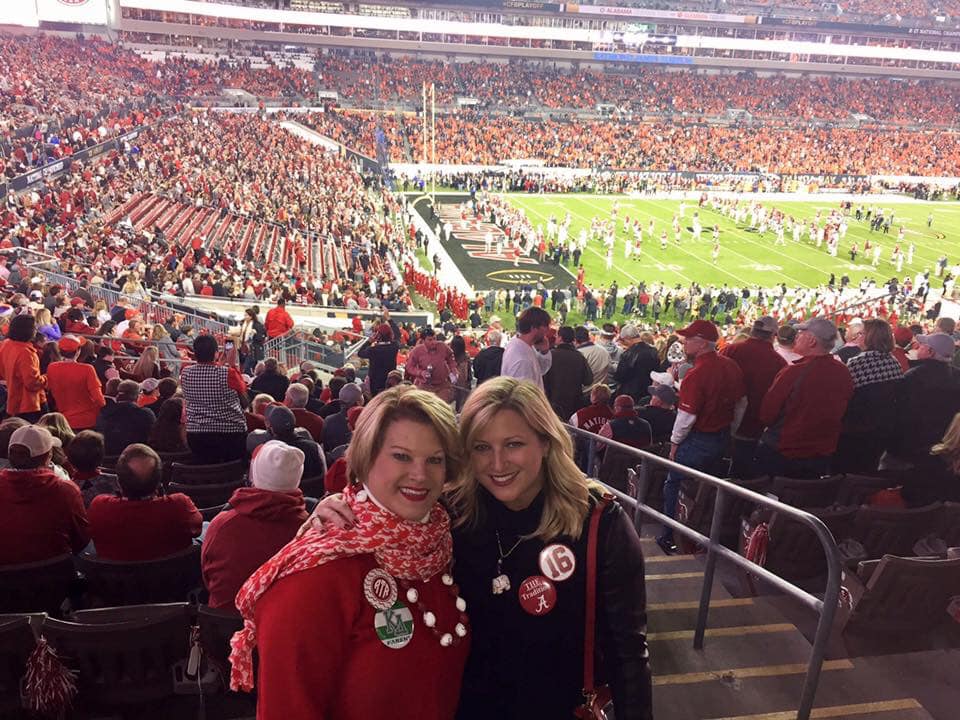
Donna Everett Powell and her daughter Sarah Timmons at an Alabama football game: Facebook
“They thought it was La La Land,” she said. “Everybody was busy and it was good. We worked hard, played hard. Made a good living and gave a lot of people good jobs.”
She worked for Avondale Mills, which is no longer in business, then other local mills before opening Everett Sales in the 1980s.
“You had a lot of people and they made a lot of money,” she said. “They paid by production, so if you were good you could make a decent living. They also paid their people well. And because of what hosiery brought in, the hotels were full. Salesmen were here all the time. Buyers were here. Then you had the grocery stores, you know, satellite businesses just like Mercedes.”
A Democrat from Cullman in the Fourth Congressional District named James E. Folsom, Jr., known to some as “Little Jim” since his father was known as “Big Jim” Folsom — the legendary populist governor from the 1940s and 50s — was largely credited with drinking beer with the Germans and recruiting Mercedes-Benz to come to Tuscaloosa in 1993 in his only short term as governor after Republican Guy Hunt was removed from office for corruption. That set off a boom in other towns around the state as other automobile manufacturing plants moved in.
At about the same time the North America Free Trade Agreement (NAFTA) hit the garment industry in North Alabama hard, Everett said, so plants stopped making pants and shirts here too. Then came another trade agreement in 2005.
CAFTA
Something happened in Washington, D.C. the week of July 27-28, 2005, that shook the economy and the people of Lookout Mountain and Sand Mountain to the ground.
It wasn’t just the entry of China into the trade scene. A bill proposing passage of the Central America Free Trade Agreement (CAFTA) was deadlocked in the House of Representatives at 215 votes to 215.
Republican Congressman Robert Aderholt, representing the Fourth District, including Fort Payne and Dekalb County, said publicly he was against it. He had in his hands a once in a lifetime opportunity in the House, where votes are rarely this close, to cast the deciding vote — to kill the bill and save the jobs of the people he represented.
While he was standing in the House gallery with some constituents the day before the vote, his cellphone rang. It was the president of the United States himself, George W. Bush.
The president logrolled Aderholt and made the case that passage of the bill was in the interest of “national security.” Aderholt pushed for assurances that the sock plants would be protected. The president assured him he would see what he could do.
“I have some real concerns about the way CAFTA would treat my district, and I have some things that really need to be worked out before I can vote for it,” Aderholt said he told the president. “He said, ‘OK, we’ll continue to call you on this’.”
By the end of the day, Aderholt had in hand a letter signed by Commerce Secretary Carlos M. Gutierrez and U.S. Trade Representative Rob Portman, according to The Los Angeles Times, promising a series of steps to protect sock manufacturers and poultry producers in Aderholt’s district.
The late bargaining for votes in support of CAFTA angered critics, according to news coverage from the time, who said they considered the last minute “backroom” deal-making “unseemly.”
“Right there in front of us, for the world to see, they were twisting arms, making deals, changing votes,” said House Minority Leader Nancy Pelosi, the Democrat from San Francisco. “This let’s-make-a-deal mentality … has got to stop.”
When the CAFTA bill was being debated in Congress, Everett said, “We were going back and forth to Washington lobbying trying to keep it where we could compete.”
They were not greedy for “free trade,” he said. “Just fair trade.”
After midnight, Aderholt entered the House chamber and cast the deciding vote — in favor of the bill. It was approved by the Senate two days later, and signed into law by Bush. No provision protecting the sock industry made it into the bill.
Over the next few months and years, sock plants closed and left North Alabama for Guatemala, Honduras, Canada and the four corners of the Earth, and 5,000 people lost their jobs, not even counting related businesses.
“That’s when the hurt came,” Powell said. She describes herself as a conservative who contributed to Aderholt’s campaigns. “A lot of people just closed and got out.”
The cotton, yarn and lint lay in piles in warehouses and mills all over town, with no one to work it, and no one to buy it. The price of labor was too cheap in those other places, where people worked for about $100 a week. Here they could make $400-800 a week, from $10 to $20 an hour. It became just too expensive to make socks here anymore.
“Everybody was busy back in ’05,” Everett said. “I started back in ’85 and ran all I could run, with one little slowdown in ’99. That lasted about six months and then it kicked in again. I ran 7 days a week, 24-hours a day, until the summer of ’08.”
Then the company moved the machinery to Central America. He made a trip to Honduras and considered moving there, but decided against it.
“We just laid everybody off,” Everett said. “It was just sad when we lost all that.”
The next time Congress adjourned later that summer, Aderholt had to come back to Alabama to face angry people even in his home town of Haleyville and crowds of workers at town halls across the state, not just in Fort Payne. Aderholt was taken to task in the local newspapers, with one editorial claiming “history” would be the judge of him for that vote.
But do people in the Fourth District even know about it now, or remember?
“He didn’t get much sympathy from the textile industry,” Everett said. “From the sock industry in North Alabama and the people who worked in the mills, they’ve still got hard feelings about it.”
So why do they keep voting for him?
“I don’t think there’s been anybody running against him, hardly,” Everett said.
Things began to pick up a little bit for the sock makers in 2017, Everett said, right after Trump was sworn into office and started fighting trade wars with China and other countries. Then the coronavirus hit. Walmart mens socks were not considered an “essential business.”
God’s Country

Another view of DeSoto Falls: Glynn Wilson
Somehow over the years the people here just let it go, turning their sorrows over to God. Many moved away to take jobs in places like Texas and even New York. The town that was fed by socks shrank and retrenched.
Somehow the people just kept voting for Republicans like Aderholt, who some would say sold them down the river for a fancy house in Arlington, Virginia and a lucrative deal in Congress. He also developed a cozy relationship with The Family, the group that has used the national prayer breakfast as a whipping post for politicians to swear their allegiance to the notion that the U.S.A. is a “Christian Nation,” even though the Constitution says it’s not so.
They gradually forgot about all those promises of more good paying jobs to replace the ones that were lost, and gravitated to voting for anyone who would call themselves a Christian and a Republican. For a long time one party controlled the politics here, the Democratic Party. Now people just vote for anyone who vows to fight abortion and for Second Amendment gun rights, and by the way, say they are not for same sex marriage or the right to life for gay people.
The people of North Alabama just moved on, taking solace and pride in the country music fame of the local band Alabama from Fort Payne, with hit songs like “Love in the First Degree,” “Take Me Down,” “Dixieland Delight” and “Southern Star.” Much like East Tennessee, these Appalachian hills spawned other talented musicians and writers too.
Novel Coronavirus
Now with the novel coronavirus hanging over the land, a place some visitors call “God’s Country” for the mountainous beauty of Lookout Mountain, home to DeSoto State Park and DeSoto Falls, as well as the Little River Canyon National Preserve and the historic little town of Mentone, there is a fear gripping the place, making it hard to get people to talk at all.
They suffered from the Great Recession in 2007-2009 and it’s long aftermath just like everybody else, and were hit by a major series of devastating tornadoes in 2011 just like Tuscaloosa and St. Clair County.
Now this. A global pandemic and international economic crisis of long-term epic proportions.
As of this writing, there were just over 3 million confirmed cases and more than 208,000 deaths from COVID-19 across the world, with a million cases and more than 56,000 deaths in the U.S.
So far there are just over 6,500 cases and 228 deaths in Alabama, but only 37 confirmed cases and 2 deaths in Dekalb County, according to the Alabama Department of Public Health. But testing is hard to come by, so who knows the real numbers?
I called the number listed on the state health website last Friday for the Dekalb Regional Medical Center and had to leave a message to make an appointment to get tested, and they didn’t call back until Wednesday. They gave me another number to call to a local doctor’s office, where I would have had to pay for an office visit so they could put my information into the system. Now what if I had really been sick?
You can still find people camping at DeSoto and hiking the trails, and boating on local waterways, but the bars and restaurants are all closed. So there’s not much to do except watch cable TV if you have it, or check Facebook over the internet.
“Back in the day I had 150 customers and there were probably 150 mills,” Powell said. “Little bitty mills to big ones. Now we don’t even have 15.”
These days, with the threat of catching COVID-19 at the Walmart or on the gas pumps or from their neighbors, people in this rural area mostly stay home. Many businesses are shut down and owners and workers are left wondering if they will ever reopen.
“It’s hard to predict what will happen next,” she said. “We were working four days a week. It’s different now. It’s all high speed, high tech. But back in the day it stayed the same. It was fun. I really enjoyed the people.”
Aderholt Challenged by Democrat Rick Neighbors
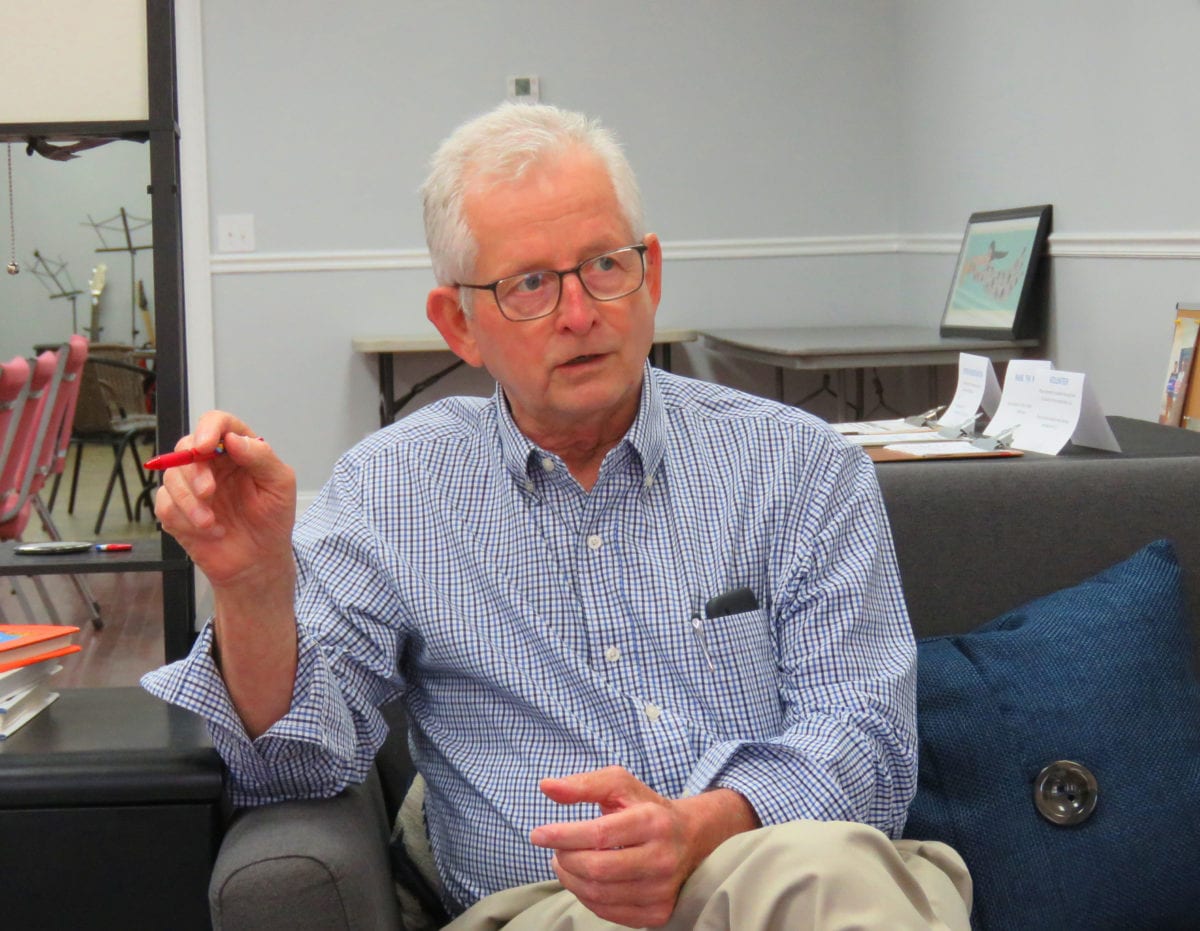
Rick Neighbors, Democratic candidate for Congress in Alabama’s Fourth District, talks about bringing good jobs to North Alabama at the Dekalb County Democratic Party headquarters in Fort Payne: Glynn Wilson
Aderholt is being challenged for his seat in Congress this year by Democrat Rick Neighbors of Russellville on the far side of the state. Pundits and prognosticators don’t give him much of a chance, since Republican President Donald Trump garnered 80 percent of the vote here in 2016.
But those same pundits and prognosticators also said in 2016 that Hillary Clinton was going to be president of the United States, and dismissed the chances of Birmingham Democrat Doug Jones in 2017, when he ran for the U.S. Senate against former Ten Commandments Judge Roy Moore. He was a conservative Christian Republican favorite in these parts, winning the Republican nomination.
In the final months of the campaign, however, Moore was accused by The Washington Post #MeToo investigative team of chasing underage girls for sex in his home town of Gadsden when he was in his 30s and working in the local District Attorneys office, charges he still denies. He was even pilloried in local and national publications and on late night talk shows for being banned from the Gadsden Mall.
It was a sordid tale that handed the Senate seat back to a Democrat for the first time in a quarter century.
CAFTA Vote
In a recent interview, when asked what he thought of the Aderholt vote on CAFTA, Neighbors was unequivocal.
“To my mind that was the only time he was put to the test, and he failed the people of this district,” he said. “And you know what? Many people in Dekalb County (and across the district) don’t even know that” or remember.
Related Coverage
An Easter Message: Yes, Virginia, You Can Be a Democrat and a Christian
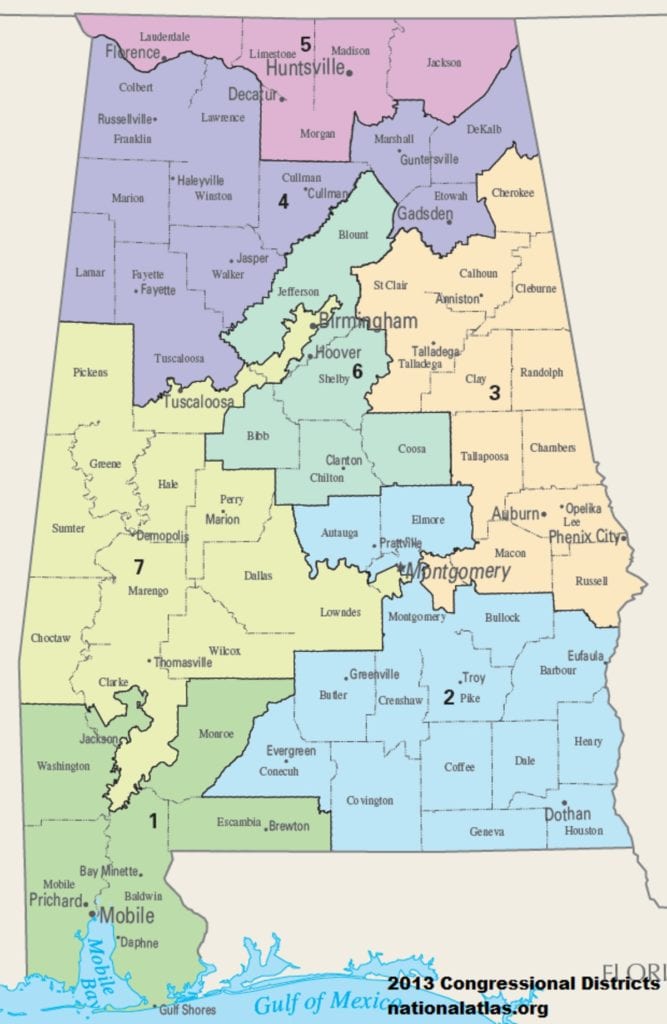
Alabama’s Fourth Congressional District Map in purple
More Photos
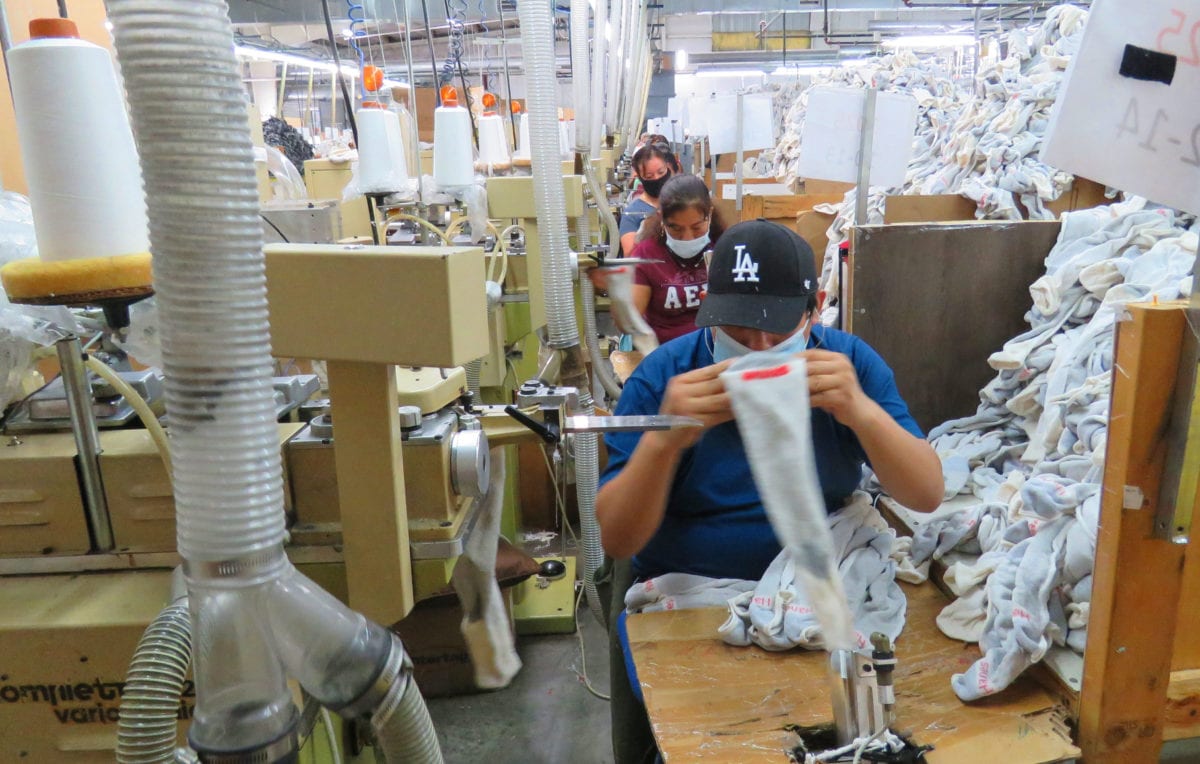
Workers sewing socks in North Alabama: Glynn Wilson
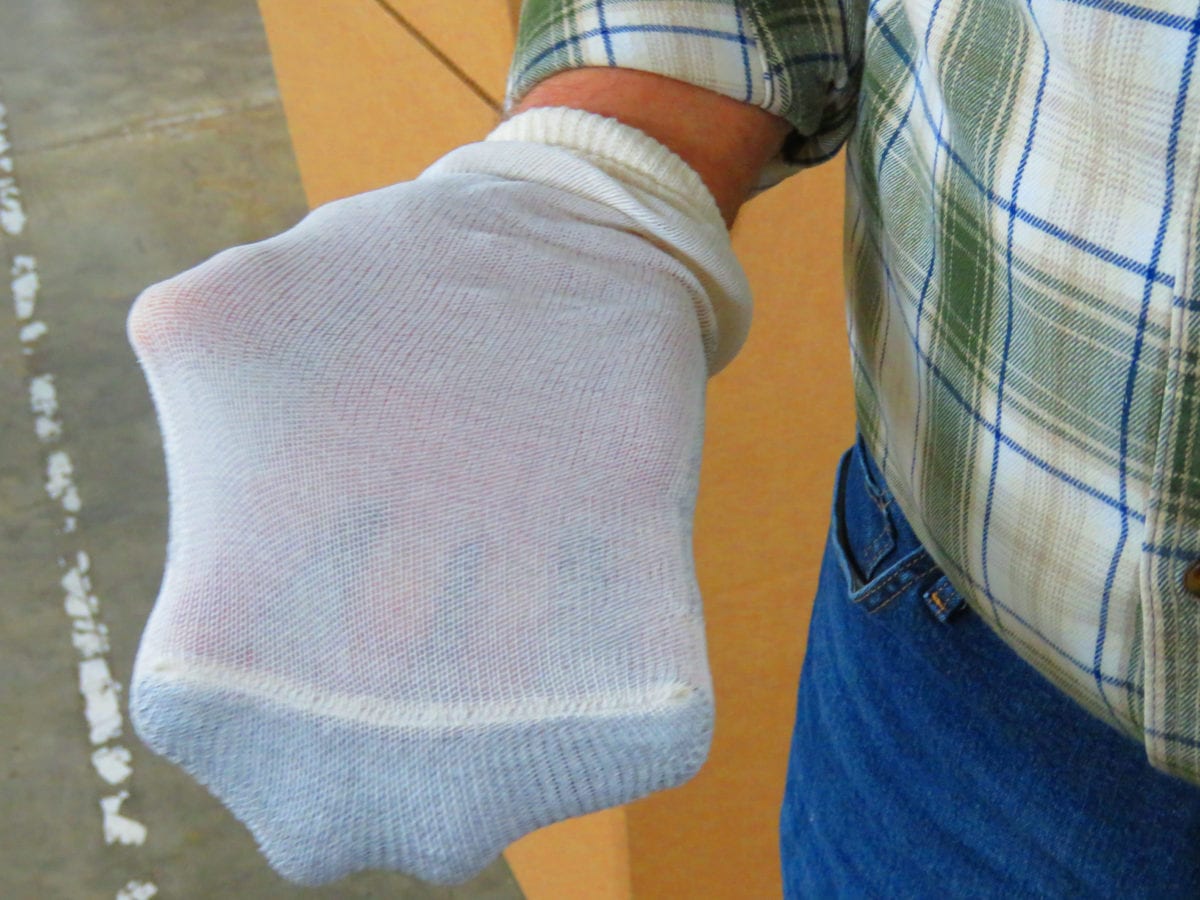
A sock made in Dekalb County, Alabama: Glynn Wilson

Little River Falls: Glynn Wilson
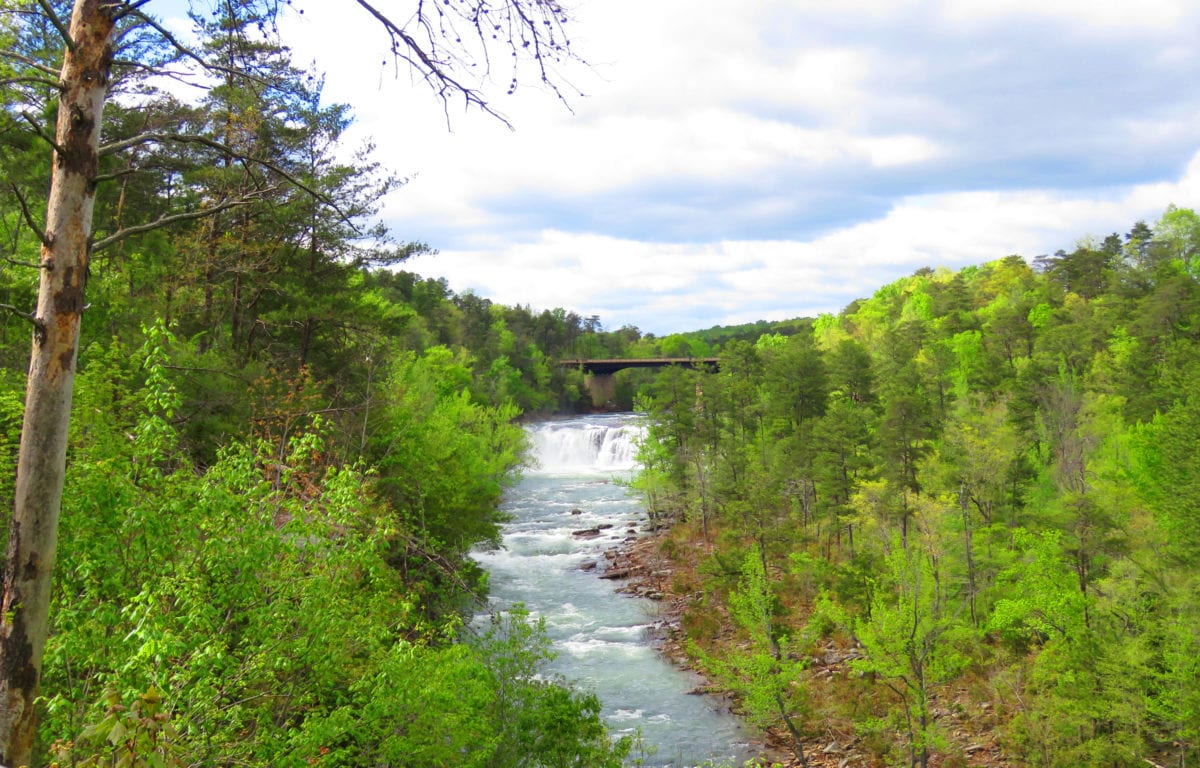
The Little River running through the Little River Canyon National Preserve: Glynn Wilson
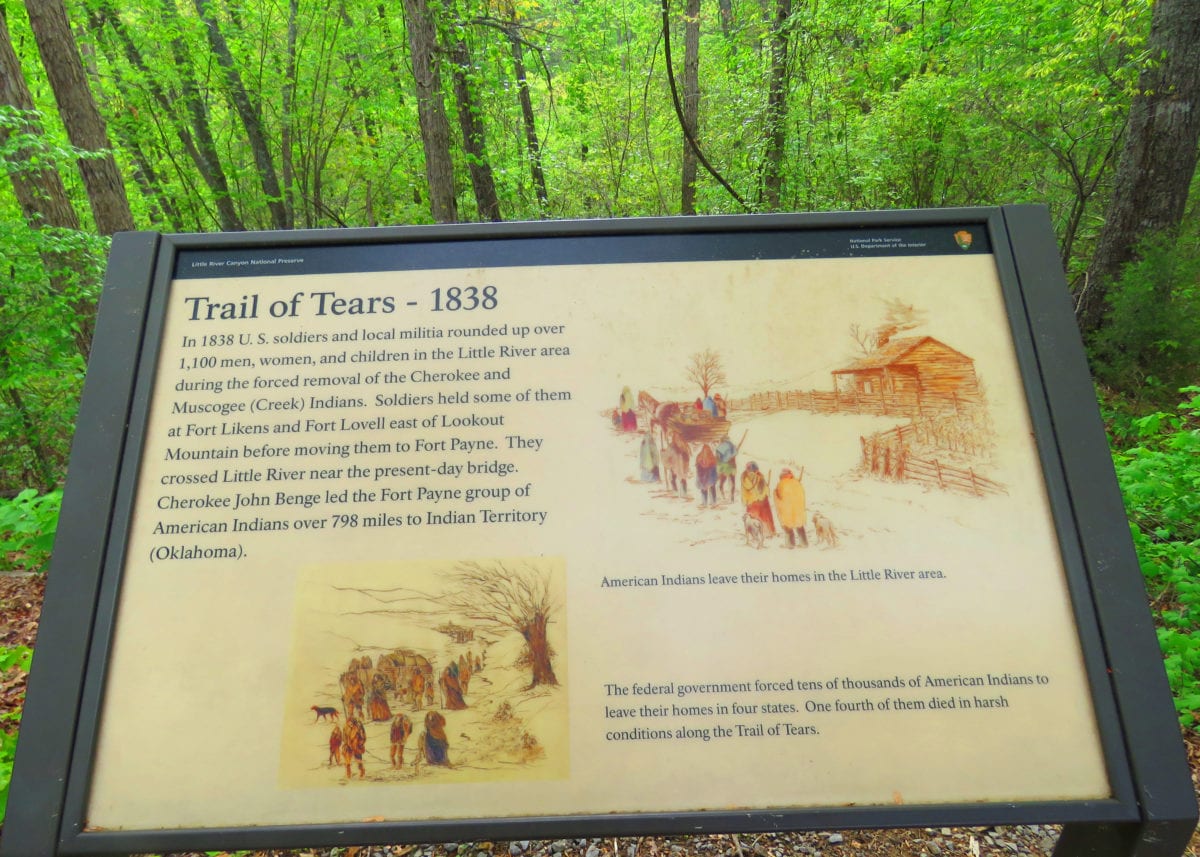
The Trail of Tears runs though Dekalb County, Alabama: Glynn Wilson

Dekalb County is also home to the rare Lady Slipper orchid [Cypripedium reginae], just coming into bloom in April, 2020: Glynn Wilson
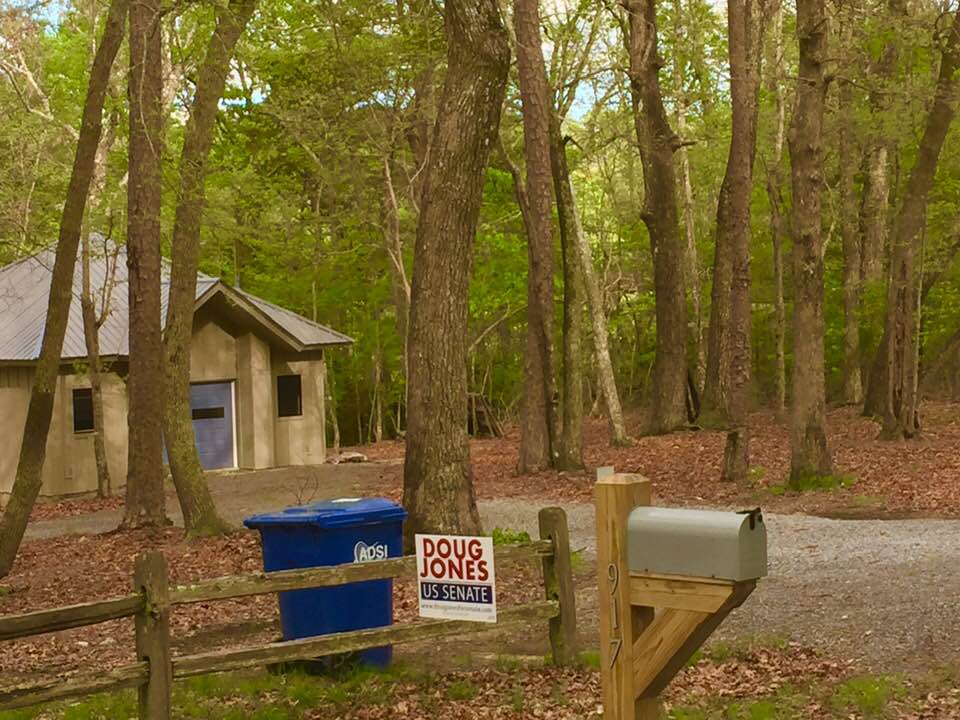
Doug Jones for Senate signs still dot the landscape in Dekalb County, left over from the special election in 2017, this one right across from DeSoto Falls: Glynn Wilson














Great article-wish Rick Neighbors well. The GOP (government oppressing people) has always benefited from a willfully ignorant electorate more knowledgeable on sports as opposed to history and feeding off soundbites as “God and Country” to dupe them into voting against their own self interest.
That’s a great piece, Glynn. I love my hometown, and I hate that so many small towns have lost industry and jobs for what we were told would be a great global economic boost. CAFTA, NAFTA, Republicans, Democrats: both parties had a hand in it.
Great article, I learned a lot! I visit your part of the world every so often and it is indeed beautiful. Your people have big wonderful hearts. I hope people see the light and what is truly best for them and their neighbors. May we all love our neighbors more, all of them. A vote for Mr. Neighbors sounds like a great first step to rebuilding the glory days again.